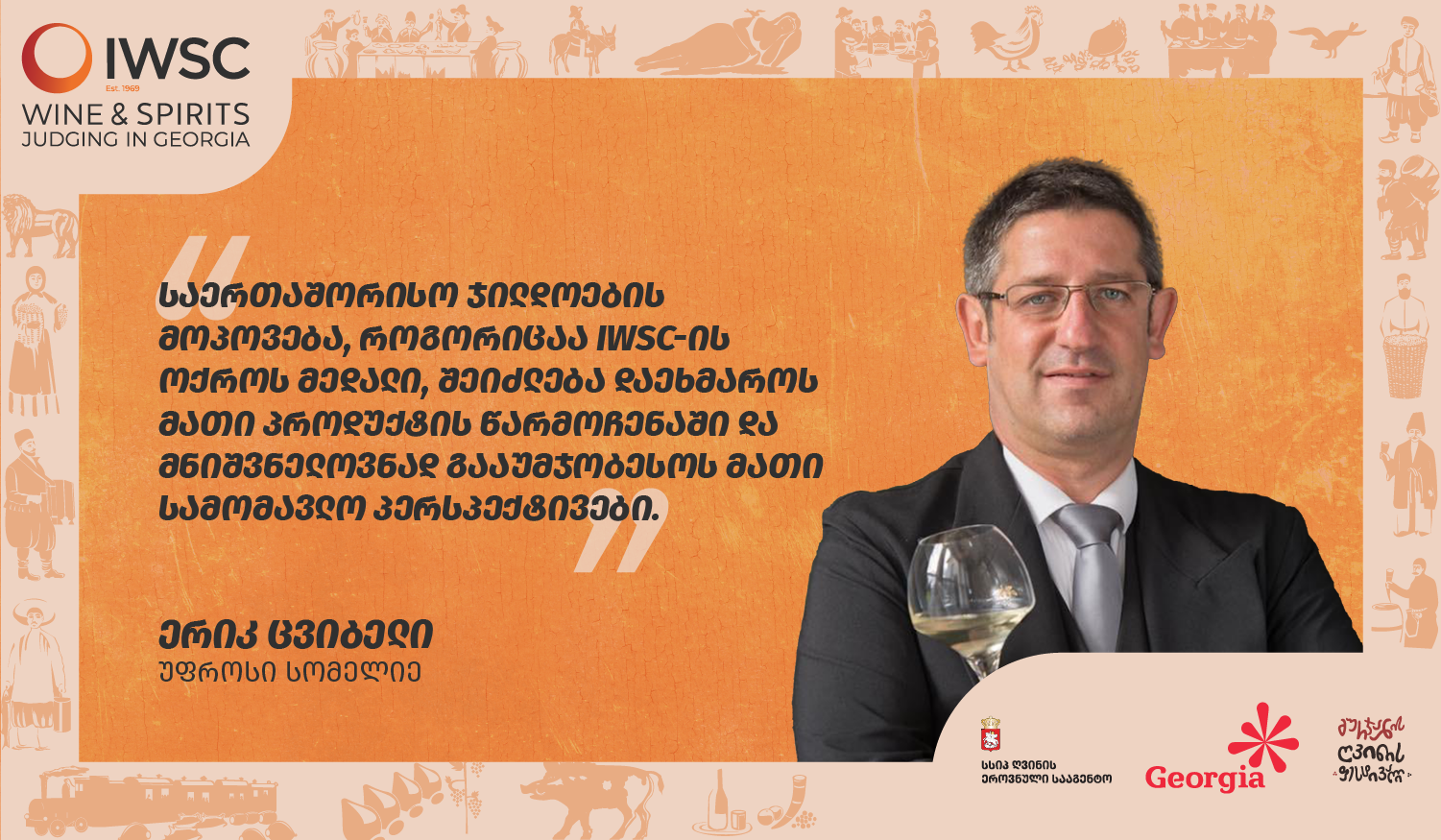
Eric Zwiebel: I’m coming to Georgia to make discoveries. I hope I’ll find something unique.
The IWSC (International Wines and Spirits Competition) will hold its third competition in Georgia. The competition will be held in Tbilisi from November 27 to December 1, 2024, in collaboration with the Gurjaani Wine Festival and the National Wine Agency of Georgia.
Currently, Eric works at the prestigious hotel chain The Samling and manages one of the best wine cellars in England, where he plans to expand the collection from 1,200 to 2,500 varieties.
For the first time this year, in addition to wine, it will be possible to submit chacha, brandy and other high-alcohol beverages to the competition. Eric will be the judge of spirits. He has never been to Georgia and is preparing to come to Georgia for the competition with great curiosity.
What is your vision for Georgian spirits and what are you most looking forward to in this year’s competition?
First of all, I am very happy to be participating in this competition in Georgia. I know little about Georgian wines… I have never been to Georgia and I think there is something missing in my Georgian wine experience. I often attend various tastings and competitions in London, such as the Best Sommelier in England and others, but I am always eager to learn new things. Judging for the IWSC is a great opportunity for me to go to Georgia, understand and taste what Georgians drink every day. This experience will significantly improve my knowledge in this field.
Georgian chacha is internationally recognized. As someone who has conducted many master classes, how do you introduce this drink to a foreign audience?
I would emphasize that many countries have experience in producing spirits and have the potential to popularize it on the English market. During the master class, I would explain the historical significance of Georgian spirits. In addition, I would consider pairings and uses with cocktails, specific dishes and regular drinks (such as coffee and tea).
You have extensive experience with wines from different regions. How do you see Georgian spirits positioning themselves in the international spirits market?
I have not been an IWSC judge for the last few years and I am looking forward to experiencing, tasting and exploring new products. It is fascinating to see what has historically always been available but has been inaccessible to the international market. I want to learn more about how these spirits are made and who is behind them. Understanding their production will help me to understand more about where they will fit in the UK market.
As a spirits judge, what qualities do you look for in Georgian samples that can set them apart from other international spirits?
To be honest, it’s hard to say what I’m looking for right now, as I haven’t tried them yet. I’m coming to Georgia to discover more. My best answer is that I hope to find something unique, but I can’t comment on specifics at this time until I understand better what’s available.
Based on your experience in sommelier competitions, what advice would you give to Georgian spirits producers?
Quality is important, but it’s not enough. It’s important for Georgian producers to understand their identity and how to position themselves in the market. They should be proactive in their engagement with the international market and even consider working with ambassadors to promote their products. Finding a place in Georgian restaurants abroad and winning international awards, such as the IWSC Gold Medal, can help showcase their product and significantly improve their future prospects.
Please note that registration for participation in the “IWSC 2025 Wine & Spirits Judging in Georgia” is open until November 1.
To register, visit the link: https://bit.ly/4eUvaCG
